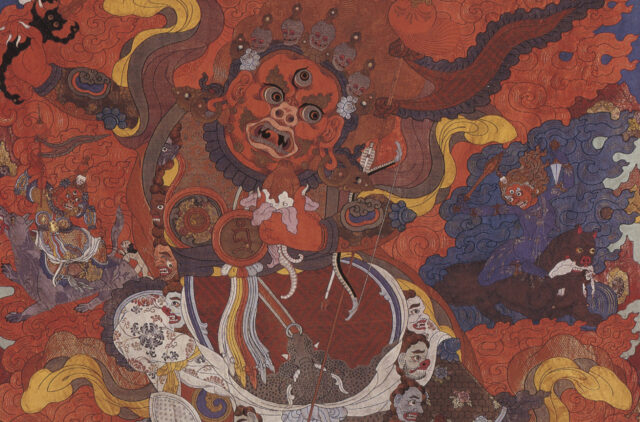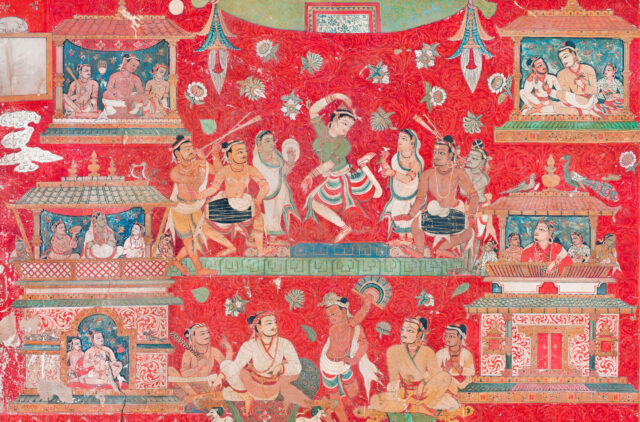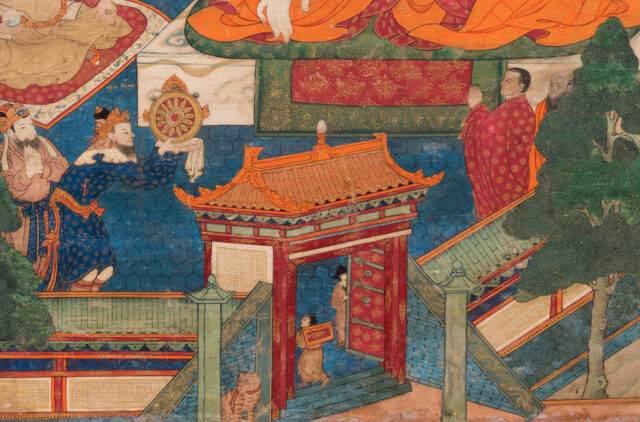Stay connected. Sign up for the Rubin Museum’s monthly newsletter to receive updates about upcoming exhibitions, programs, digital features, and more.
Subscribeemptiness
emptiness
Emptiness is a core concept of the Madhyamaka philosophical tradition of Mahayana Buddhism, most famously formulated by the Indian philosopher Nagarjuna (ca. second to third century CE) and elaborated by Chandrakirti (c. seventh century CE). Emptiness (Skt. shunyata) refers to the absence of inherent existence, meaning that although all things, including the self, exist insofar as we perceive them, they are constantly changing and dependent on causes and conditions, and thus empty of inherent existence. Buddhas are said to perceive both of these relative and absolute truths at once. Other Buddhist traditions, for instance Dzogchen and the Jonang, interpret emptiness as a primordial state of radiant awareness underlying the phenomenal world.



